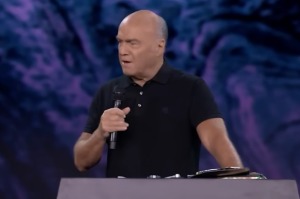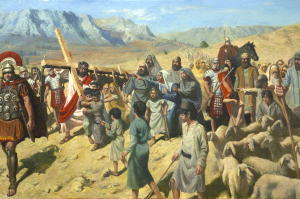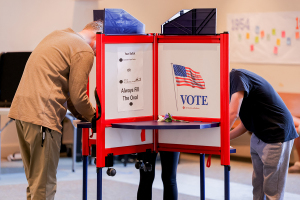Allie Beth Stuckey on how leftist mantras exploit Christian compassion: 'We think we're more loving than God'
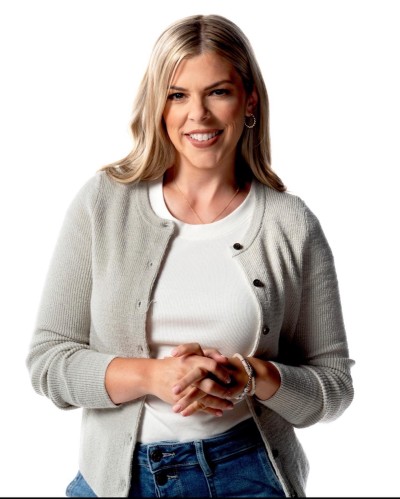
Empathy, a virtue Christians are called to exemplify, is being redefined in an era of increasingly polarized viewpoints and weaponized to undermine moral clarity — and the ramifications are devastating.
That’s according to Allie Beth Stuckey, author, speaker, commentator and the host of the BlazeTV podcast "Relatable" who, in an interview with The Christian Post, opened up about her latest book, Toxic Empathy: How the Left Exploits Christian Compassion. In it, she delves into the distinction between compassion grounded in biblical principles and an empathy that, she says, can cloud moral clarity.
“Empathy really is not a biblical command. Empathy means to feel how someone else feels. That can be good or it can be bad. It's not virtuous in itself,” she said. “Empathy can motivate us toward love. It can also blind us to reality or morality.”
Her critique is aimed at what she described as a one-sided empathy that, for instance, focuses solely on the immediate fears of a woman considering abortion without weighing the life of the unborn child. Stuckey believes that such empathy, when encouraged uncritically, can motivate people to affirm actions at odds with biblical teachings.
“If you feel the feelings of the woman who is considering abortion … her anxiety, her fear, her desire to graduate from college or whatever it is, that can be a good thing to understand. … But if that is all that you feel, and if you are so in her feelings that you are blinded to the other side of that moral equation, which is the life of the unborn child, well, then you've just made a calculation to affirm her choice in the name of empathy at the expense of the child whose life is being lost in abortion,” she said.
In Toxic Empathy, Stuckey applies this lens to five politically charged issues — abortion, gender, sexuality, immigration and social justice — asserting that each is influenced by “mantras” that discourage deeper inquiry.
“Slogans like ‘love is love’ or ‘abortion is healthcare’ are circular and often lack defined terms,” she said. “They’re meant to tug on heartstrings and evoke an emotional response, not to engage critical thinking.”
The call for 'truth in love' over blind empathy
Stuckey’s work draws from a long-standing Christian principle that love must be grounded in truth. Rather than dismissing empathy, she advocated for a careful balance, urging Christians to practice discernment and critical thinking, especially in matters of policy.
She cited the summer of 2020 when some Christian leaders called on believers to “lead by empathy” when addressing complex issues like pandemic responses and social justice.
This, she said, led to a conflation between empathy and love — an error she said is still prevalent in the Church and clouds the deeper, more difficult task of balancing empathy with truth.
“Love is defined in 1 Corinthians 13 as a lot of things, but one of the things is that it never rejoices in wrongdoing, but rejoices with the truth. Empathy really has no concern with what is actually true. It's only concerned with how someone feels, which can only get you so far,” she said.
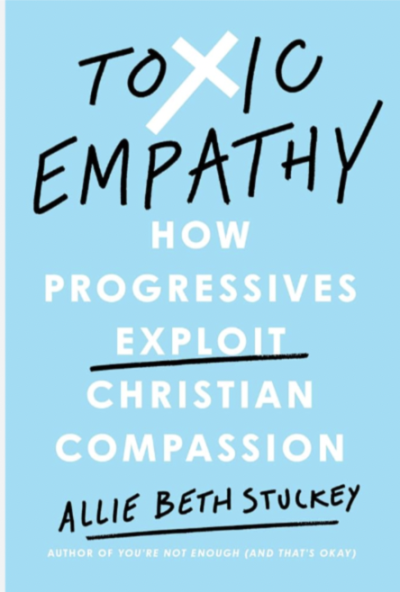
“Love, as we read in Scripture, by the God who created it, is inextricably intertwined with truth. And so this truth-in-love approach is much better, more substantive, more profound and much more biblical than this superficial, toxic empathy, which emotionally manipulates people into only focusing on one particular victim and affirming whatever that person wants.”
In her perspective, the Church has become increasingly susceptible to what she termed “empathy traps,” where congregants and leaders may find themselves compromising on core principles in a bid to empathize. By focusing solely on individual emotional narratives, churches risk adopting policies that, Stuckey warned, neglect broader truths and consequences.
“For example,” she shared, “if a friend says, ‘I feel like I was born in the wrong body,’ you might empathize with their confusion and distress. That’s natural.”
But empathy can cross a line if it leads to affirming beliefs that go against biblical understanding, she added, such as the idea that God created “male and female” and anyone living outside of that framework is “in bondage to sin.”
“If your empathy for someone is encouraging you or tempting you to compromise on biblical truth … then we are falling into the trap of thinking that we are nicer than God, that we are more loving than God, that we are more compassionate than God, by disagreeing with Him. But since God is love, the most loving thing we could always do is agree with God,” she said.
A path forward: Seeking wisdom in Scripture
Through Toxic Empathy, Stuckey emphasizes the need for Christians to return to Scripture and wisdom traditions when grappling with empathy.
“The Bible may not give us explicit answers for every nuanced political topic, but it does offer principles of justice and national sovereignty,” she says. These, she believes, offer guidance in an era where Americans disagree even on “existential human nature” questions, such as gender and life’s beginning.
Ultimately, Stuckey acknowledges that reversing the influence of “toxic empathy” in society will require a cultural shift — a task she admitted is daunting.
“It would take a spiritual awakening; it would take changing hearts of stone into hearts of flesh by the mercy of God to change this country,” she said. “Can God do that? He absolutely can. He may not. That might not be where His mercy goes.
"I think sometimes we believe that America is the center in the apocalyptic narrative, that we are going to play a big role in the End Times," she added.
"That's not necessarily true. We're another nation. Empires rise and fall all the time throughout history. I hope, for the sake of us, for the sake of our kids, for the sake of our grandkids, that God will continue to extend His mercy, that there will be a spiritual awakening in this country. But Christians have to continue to be a refuge of clarity and courage in an age of chaos and cowardice, and God will choose to use us however He wants.”
Leah M. Klett is a reporter for The Christian Post. She can be reached at: leah.klett@christianpost.com
















